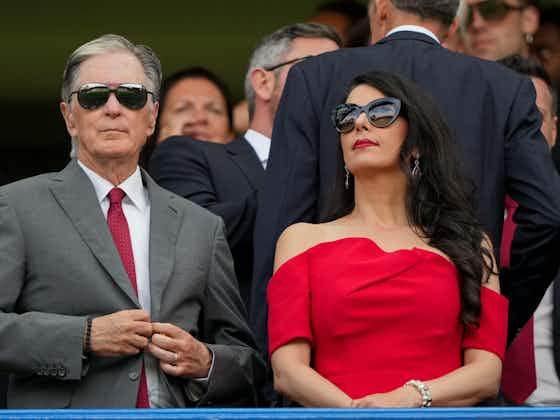Anfield Index
·21 de agosto de 2024
Revealed: Former Liverpool Director ‘Begged’ FSG Not to Sign £32m Star

In partnership with
Yahoo sportsAnfield Index
·21 de agosto de 2024

Liverpool Football Club’s journey through various management and transfer strategies has been a rollercoaster of philosophies and outcomes, vividly highlighted by the stark differences between Jurgen Klopp and Brendan Rodgers. As Klopp’s tenure garners praise for its innovative and data-driven approach, reflecting on Rodgers’ era offers crucial insights into the evolving nature of football management.
While Jurgen Klopp’s methodical and analytical approach to transfers had transformed Liverpool into one of the Premier League’s most enviable teams, Brendan Rodgers’ tenure tells a different story. Rodgers, preferring a more traditional and perhaps intuitive method, often clashed with the data-driven suggestions of Liverpool’s recruitment team.
The case of Christian Benteke is particularly telling. Despite repeated advice against signing Benteke due to a mismatch in playing style, Rodgers pushed for his acquisition. Ian Graham, Liverpool’s former director of research, shared with This Is Anfield that he “begged” Fenway Sports Group (FSG) not to sanction Benteke’s signing. Graham’s reservations stemmed from a clear understanding that Benteke, while effective in a suitable system, did not fit Liverpool’s style of play at the time.

Photo: IMAGO
Rodgers’ tenure was marked by several signings that seemed to defy the analytical advice provided by the club’s analysts. Players like Joe Allen and Fabio Borini, and notably Benteke, were pursued aggressively despite the data suggesting otherwise. Graham’s frustration was palpable when discussing alternatives, noting that players like Romelu Lukaku and even Diego Costa might have been better fits for the club’s strategic needs at the time.
In contrast, Klopp’s willingness to integrate and trust the insights from Liverpool’s analytical team was a cornerstone of his success, highlighting the importance of aligning managerial vision with player recruitment.
The narrative around Benteke’s recruitment, referred to as the ‘Benteke saga’ by Graham, underscores a significant period of contention within Liverpool’s management. Rodgers’ persistence over three summers eventually led to Benteke’s signing in 2015. Graham reflects on this period with a hint of regret, acknowledging Benteke’s decent goal-scoring rate at Anfield but emphasizing the overall strategic misfit.
This episode serves as a poignant example of the potential pitfalls when a club’s management is not fully aligned with its strategic and analytical frameworks.
Graham’s insights reveal that from the onset, Rodgers positioned himself as a traditional British manager who desired complete control over recruitment decisions. This stance was in direct conflict with FSG’s vision for a collaborative and data-informed decision-making process. The friction between managerial autonomy and collaborative strategies is a recurring theme in football club management, and Liverpool’s experience under Rodgers provides key lessons in the dynamics of club governance.
As a Liverpool supporter, reflecting on the contrasting transfer strategies under Rodgers and Klopp is both enlightening and somewhat frustrating. The ‘Benteke saga’ symbolizes a broader issue of misalignment that plagued Rodgers’ era, where personal preferences overshadowed statistical insights. Klopp’s tenure, in contrast, has been a breath of fresh air, emphasizing that success in modern football requires a harmonious blend of analytics, scouting, and managerial insight.
The thought of what could have been—like a forward line featuring Luis Suarez and Diego Costa—stirs a blend of frustration and curiosity. However, the progress under Klopp reassures us that the club is now on a path that respects both the art and science of football.
This analysis underscores the need for a balanced approach to football management, where data and traditional scouting are integrated seamlessly. Klopp’s success is a testament to the efficacy of embracing a multifaceted strategy, and hopefully, it sets a standard for future managerial appointments and transfer strategies at Anfield.






























































